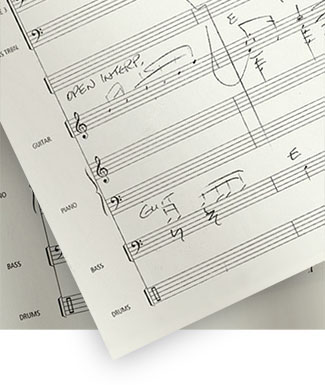
Soprano
Piano
Violin I (5)
Violin II (5)
Viola (3)
Violoncello (3)
Contrabass (1)
Bass clarinet and alto clarinet (improvising musician)
Piano (improvising musician) (needs a little pad to create a muted affect on mvt. 2 & 6)
Bass (improvising musician)
Note: I have heard groups play this with 4 violas, 4 celli, and 2 contrabasses, and it is also lovely with a little extra weight on the bottom.
This work (a nine movement song cycle) was recorded on Winter Morning Walks, performed by Dawn Upshaw and the Australian Chamber Orchestra. It was commissioned by the Ojai Festival/Cal Performances/Australian Chamber Orchestra for its debut performance on June 12th, 2011. The poetry for this work is by Ted Kooser.
DESCRIPTION
This Grammy-winning song cycle "Winter Morning Walks" features nine spectacular poems from Pulitzer Prize-winning and US poet laureate Ted Kooser from his book Winter Morning Walks: One Hundred Postcards to Jim Harrison.
Recorded by the great soprano, Dawn Upshaw, and the Australian Chamber Orchestra, along with bassist, Jay Anderson, pianist, Frank Kimbrough, and alto/bass clarinet player, Scott Robinson, Winter Morning Walks (the album) received 3 Grammy Awards: best vocal performance, best classical composition, and best engineered album (classical).
Composed for string orchestra, soprano, and three music jazz musicians, the music displays a lot of flexibility in timing. It was performed and recorded by the Australian Chamber Orchestra without conductor, but Maria has conducted it a few times with other groups.
Along with the score and parts, you will receive streamed access to video of Maria talking about the rehearsal of each of these songs. You will also receive an mp3 of the recording. Aside from Maria’s videos about rehearsal of this music, she included a drawing of the set-up other orchestras have used in performance.
SOLOS
The piano and the alto/bass clarinet each have solo improvisatory moments, and jazz bass part is called on to be improvisatory and decorative as well. Specifically, the pianist, while being adept at interpreting written music as a classical player would, they must also have keen improvisatory skills, as the music relies on improvisation that’s sensitive to the poetry and music. The bass player has to have a lyrical sensibility and great skills in being decorative. The alto clarinet/bass clarinet player must be very sensitive and adept at improvisation that goes from lyrical (song #9) to abstract (song #2 and #7).
INSTRUMENTATION
Rhythm